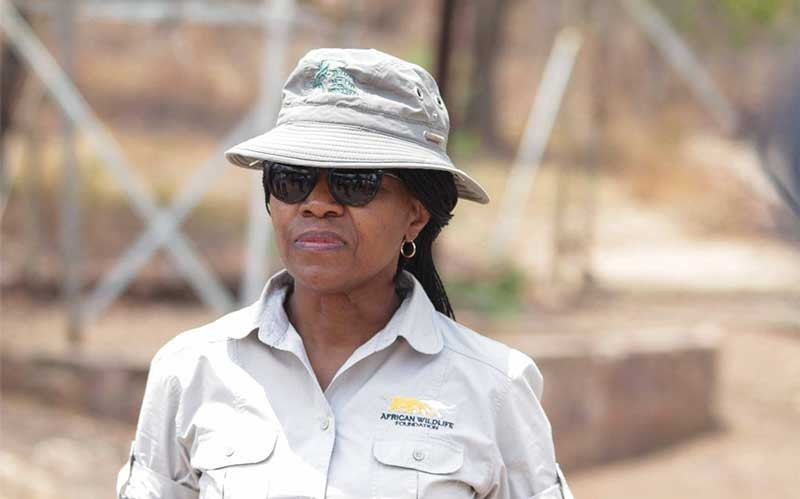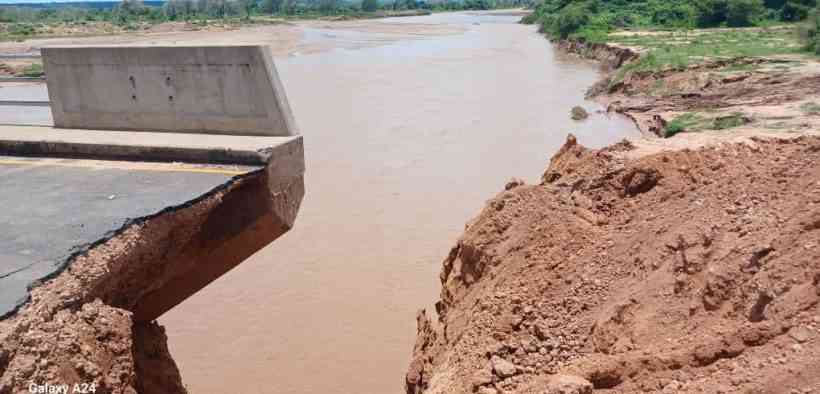
As the country grapples with the effects of climate change that are being felt globally, some traditional leaders in Mbire district have resorted to irrigation and water harvesting initiatives at community level within Mashonaland Central province.
These include construction of weir dam walls and desilting dams to improve water harvesting.
African Wildlife Foundation (AWF) is assisting various communities in some outlying rural communities along the Zambezi Valley with the water harvesting initiatives.
The project is titled Integrated and Adaptive, Biodiversity, Climate and Livelihoods Project in the Zambezi Valley.
The project covers Hurungwe and Nyaminyami districts in Mashonaland West and Mbire and Muzarabani districts within Mashonaland Central.
The project is funded by the Swedish International Development Agency (SIDA) and the Foreign Affairs ministry of Denmark (Danida).
It will run until 2025.
AWF country director Olivia Mufute said the project was a necessary intervention in the face of climate change-induced droughts.
- AWF and Nature's Best Photography award winners announced
- Farmers in Mbire find innovative way to reduce human-wildlife conflict
- AWF puts 10-year wildlife conservation strategy in motion
- ‘Communities must run local wildlife conservancies’
Keep Reading
‘‘Exploration, drilling of boreholes and the provision of clean and safe potable water to local communities has been successful in addressing climate change-induced water shortages in some areas,” Mufute said.
She said they have managed to improve access to water in drought-prone areas such as the Dande area of the Zambezi valley.
“In Mbire district, AWF identified high yielding water points and sources including boreholes and we are rehabilitating the water points with the installation of modern equipment, including solar-powered pumps, provision of new piping systems, water storage tanks including the construction of drinking troughs for livestock,” Mufute said.
“All these are efforts to ensure the provision of sustainable sufficient supplies of quality water to meet human, economic and other development and ecosystem needs.”
The interventions by AWF include building the capacity of local communities and traditional leaders on water resource management and governance.
Human-wildlife conflict has increased due to climate-induced droughts with water sources drying up.
Loss of habitat has also driven wild animals into communities, resulting in human-wildlife conflict as the animals now compete with people for food and water.
‘‘Traditional leaders and communities have embraced initiatives to provide water specifically for wildlife in conservancies and other wildlife areas within Mbire district to reduce competition with humans,” Mufute said.
“AWF provided technical and funding support for the establishment of a solar high water yielding borehole for wildlife within a major wildlife migratory corridor in the Karinyanga Conservancy, assisting communities to deal with and mitigate the drought induced human-wildlife conflict.”
Mafute said the sustainability of the projects hinges on the principles of participation, ownership and demand-driven initiatives.
She said locally-led adaptation projects were key towards addressing the real concerns that people face at community level.
“Sustainability of projects can be ensured if there are strong governance structures, particularly community-based governance structures for water management,” Mafute said.
“These structures are drawn from the ward and village development committees.
‘‘Efforts to promote best practices and strategies for service delivery, sustainability including scaling up partnerships between the community, government, development partners and the private sector partners, with monitoring of performance and implementation of adaptive management are critical.”
She said local participation and engagement guarantee the long-term sustainability of the projects.
“On the other hand, the communities are building climate resilience through growing small grains like sesame, sorghum and groundnuts, embracing Pfumvudza/Intwasa, practising agro-ecology principles and participating in irrigation schemes, among others,” she added.
‘‘Interestingly, traditional leaders are also promoting and advocating for small grain varieties, and short season crops, which are more resilient to climate induced droughts and harsh weather conditions.”
Bindura Kachasu, a social justice advocate in Mbire, said a lot needs to be done in the area to improve access to water.
‘‘While such efforts on clean water access are welcome, a lot that must be done for communities to achieve sustainable goals on healthcare, education among others,’’ Kachasu said.
Zambezi Valley suffers from the widespread effects of climate change and unsustainable exploitation of natural resources.
These threats cause poverty and community vulnerability, limiting livelihood opportunities, and endanger biodiversity and ecosystems.
Furthermore, climate-related extreme droughts, flooding, and seasonal changes cause a projected 30% reduction in agricultural production.
The just-ended COP28 held in the United Arab Emirates made calls to conserve and restore freshwater ecosystems, enhancing urban water resilience and boosting water resilient food systems.
According to the United Nations World Water Development report released this year, around two billion people around the world do not have access to clean and safe drinking water.











